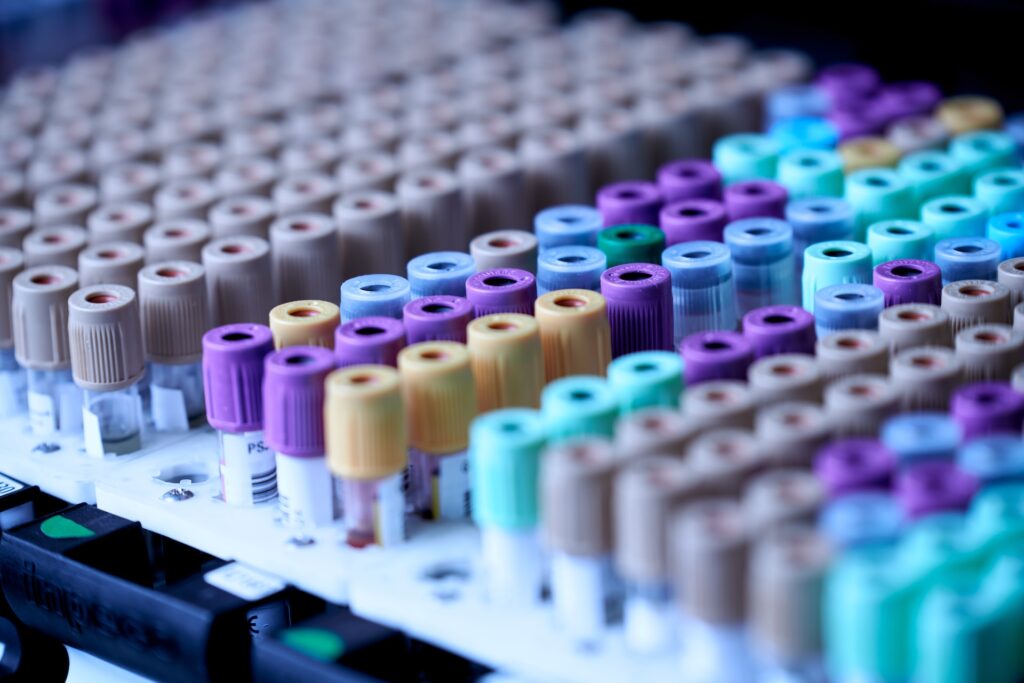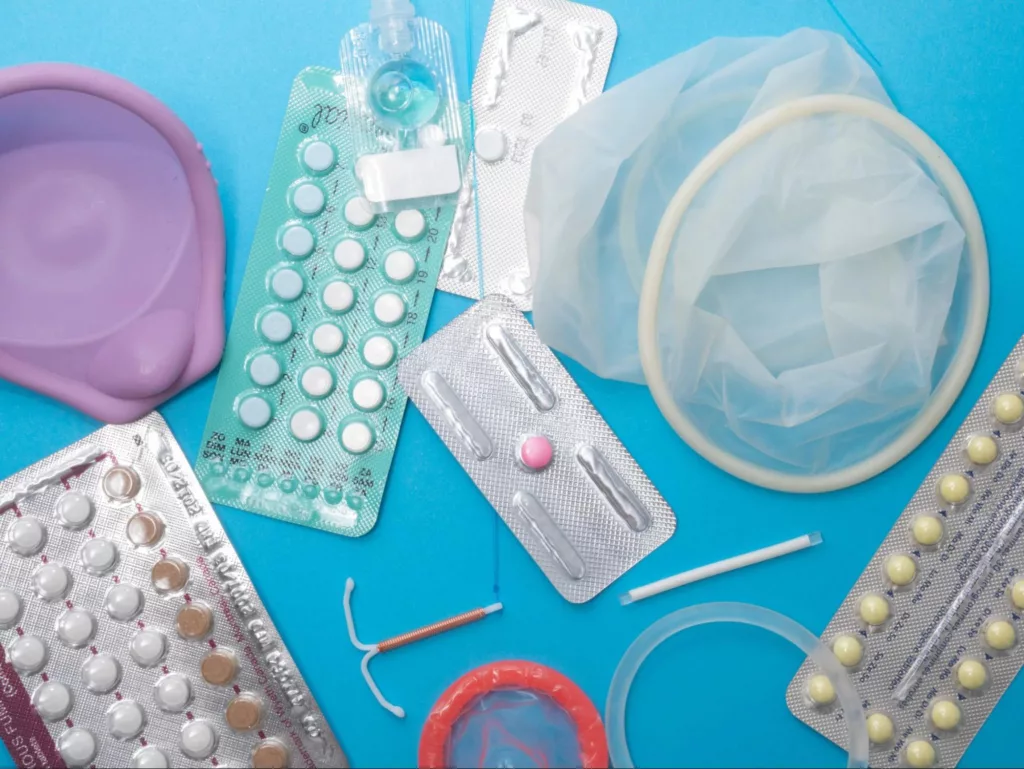
I completely understand the rationale to want to have hormone blood tests checked to see where you are in the menopause transition, and understand your experience.
Unfortunately the tests we currently have available often aren’t that helpful. They give a level at the particular point in time the test was taken, not an average, and those levels can fluctuate significantly during perimenopause.
Hormone blood tests for menopause diagnosis
Current guidance is that the FSH blood test is considered for those aged under 45 with symptoms of menopause. This test cannot be done if you are using a method of contraception containing oestrogen like the combined pill. It can be done on other forms of contraception including progesterone pills, the implant and the hormonal coil. With the contraceptive injection it is best timed when the injection is due rather than when it has recently been given.
Two blood test results showing FSH levels over 30 are used to diagnose menopause. In the perimenopause though the level does not usually reach 30. It can sometimes be normal, sometimes be on the higher side (15-20). Labs often report levels under 30 as being normal to GPs. There is no agreed level of FSH to diagnose the perimenopause. Normal FSH levels do not exclude perimenopause.
Blood tests can be really helpful if it is difficult to know what is happening because you don’t have a cycle for example after a hysterectomy it is common to enter menopause earlier even if your ovaries are conserved, but without the change in cycle sometimes it is much more tricky to recognise a perimenopause presentation of fatigue, anxiety and poor sleep for example. Similarly if you are using a hormonal method of contraception that changes your cycle like the hormonal coil and you’re experiencing symptoms blood tests can be useful.

Hormone blood tests & contraception
Blood tests can be used to help us know when we can safely stop using contraception. Using age alone, it is recommended to continue with contraception until age 55. If we are not using a hormonal method and our periods stop, we can stop contraception 2 years after our last period if it occurs under the age of 50, and 1 year after our last period if we are over the age of 50.
If we are not having periods, for example with the hormonal coil, and think we are menopausal and do not want to continue with the coil, the FSH level can help in knowing whether that is the case, and so can stop using contraception.
Hormone blood tests for understanding symptoms
Blood tests can also be really helpful in assessing symptoms that could have a number of causes. For example, fatigue is a very common symptom of perimenopause, as is a change in cycle towards longer, heavier periods. Blood tests in this scenario could be useful to check for anaemia and low iron levels.
There are very few blood tests that are routinely recommended in NHS care, they are largely used to assess for specific causes. When screening blood tests are done sometimes we will find results that are not in the “normal” range, which can cause anxiety. In many situations, for example a slightly low vitamin D level, the result may be difficult to interpret and aiming to normalise the numbers does not always lead to any improvement in how we feel or our long-term health or wellbeing. They may be “normal” for us! There are of course other situations where it is certainly helpful to aim to optimise results.
Hormone blood tests to assess oestrogen absorption from HRT
The other main reason for blood tests at menopause is to help with understanding how medications are working for us. They are not needed in most cases, as the best way of knowing if HRT is helping is whether symptoms have improved.
For example, we know approx 20% of people don’t absorb oestrogen well through the skin and blood tests to measure the oestradiol levels can help us know if this may be the case. Blood tests can’t be used to assess the effects of oral oestrogen, only transdermal oestrogen in the gel, patch or spray.
Hormone blood tests for testosterone treatment
Blood tests for testosterone levels are important if testosterone is being considered for use as part of HRT. Before starting testosterone baseline blood tests for testosterone levels help to assess whether levels are low and our oestrogen is optimised, and then during treatment we need to make sure that blood tests for testosterone levels are being kept within the usual range to avoid rare but potentially very significant and irreversible side-effects.
Further info about hormone blood tests
Women’s Health Concern leaflet Menopause
Women’s Health Concern Testosterone
